In a joint effort to champion inclusivity, The World Bank Group, the United Nations High Commission for Refugees (UNHCR), and the Association of African Universities (AAU) have come together under the African Higher Education Centers of Excellence for Development Impact (ACE Impact) project, to create the platform for Africa’s higher education stakeholders to discuss the enhancement of the sector’s support to refugee students.
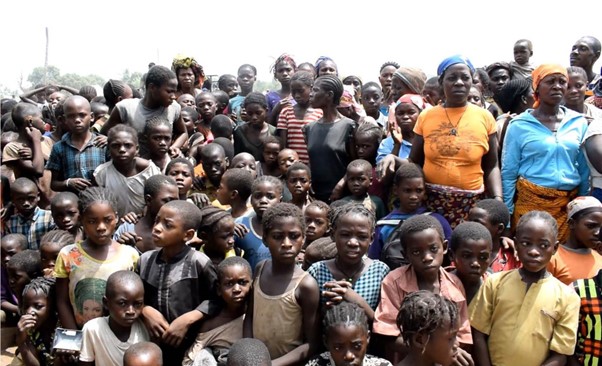
The ACE Impact project, being spearheaded by the World Bank since 2019, operates in collaboration with the governments of 11 African countries. Implemented by the AAU, the project aims to empower African higher education institutions to specialize and enhance capacities in key academic fields—STEM, agriculture, environment, health, and education—identified as pivotal drivers of Africa’s development.
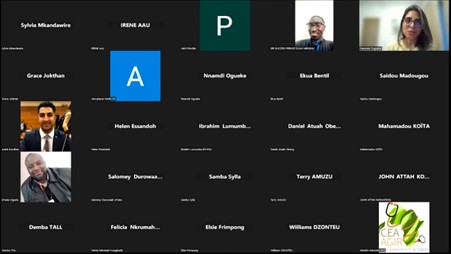
A pivotal moment in this endeavor unfolded during a webinar jointly convened by The World Bank, UNHCR, and AAU on Wednesday, February 7, 2024. The event, attended by over 80 participants from the ACE Impact community, underscored the urgent need to prioritize refugee education and inclusion in Africa’s higher education landscape.
Dr. Sylvia Mkandawire, the Senior Programme Manager for the ACE Impact project, highlighted that this webinar aligns with the project’s proactive partnership drive, previously announced by The World Bank during the 10th ACE Impact stakeholders’ regional workshop in Cote d’Ivoire from October 30 to November 3, 2023. Guided by its objectives, the webinar provided the platform for: (1) Gaining insights into the distinctive capacity needs of refugee students (2) Exploring collaborative opportunities with the UNHCR (3) Learning from direct experiences of ACE Impact Centres that have hosted refugee students (4) Gaining insights from successful models and innovative practices to shape current and future initiatives and create a meaningful impact in the lives of refugee students.
In a compelling presentation, Frankie Randle, Higher Education Specialist at the UNHCR, provided a comprehensive global overview of higher education for refugees. Randle delved into the critical barriers impeding refugees’ access to higher education, shedding light on the perspectives and challenges faced by universities. Offering proactive solutions to address refugee challenges, the presentation also spotlighted inclusive practices implemented by several higher education institutions.
Mr. Randle’s statistics revealed a staggering 36.4 million individuals are currently displaced globally – surpassing the population of Ghana, the second most populous country in West Africa. Highlighting a critical demographic, he pointed out that approximately 13.31% of these refugees, totaling around 4.8 million, fall within the typical age range for university students, which is 18 to 24 years old. Furthermore, Mr. Randle underscored the significant burden on low- and middle-income countries, as a staggering 75% of the 36.4 million refugees, totaling 27.3 million, find refuge in these nations.
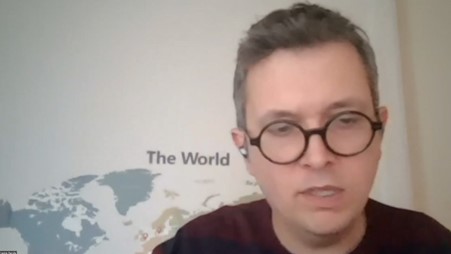
For the UNHCR, even though refugee higher education enrolment rate has since 2019 increased from 1% to 7%, it is still way below even the 42% average higher education enrolment of all youth globally. And thus, more needs to be done to raise the figures much higher. The UNHCR, supported by its research-based data, also presented about a dozen unfavorable factors that, according to it, come together to contribute to these low numbers of refugee enrolment.
Some of the barriers the UNHCR reported are: (1) Pressure on the youth refugees to contribute to household finances (2) Limited scholarship opportunities for refugees (3) Long distance to higher education institutions, compounded by refugees’ movement restrictions, in some cases (4) Limited financial stability for refugee families to fund higher education and (5) Higher international students’ fees. Others included (6) Refugees’ lack of academic certification required for admission in host countries (7) Lack of reliable power and connectivity for connected higher education programs (8) Low numbers of graduating secondary school refugee students, particularly girls and (9) Barriers that disproportionately affect female refugee enrolment.
Expanding on his insights, Mr. Randle clarified that the challenges mentioned earlier are just a fraction of the numerous obstacles that individuals, refugees and non-refugees alike, encounter while striving for higher education, whether within their home countries or abroad. Under a strategy dubbed “15 by 30,” participants were informed that the UNHCR is targeting to achieve a 15% refugee enrolment in global higher education by the year 2030. To achieve this, the refugee agency outlined its five-point strategy – “The 5 Pillars of Refugee Access to Higher Education –, namely (1) assisting refugee enrolment into national universities, (2) giving them relevant technical and vocational education and training, (3) giving them scholarships to study in third-party countries, (4) Working with many partners in many countries to bring higher education to refugees where ever they are hosted, through a Connected Higher Education program, and (5) providing bachelor-level scholarships to refugees, through the UNHCR Tertiary Scholarship program (DAFI), which has been running for over 30 years now.
To enhance its effort even further, the UNHCR highlighted that it will soon launch what it calls, Each One Take One. Under this initiative, the refugee agency has designed a plan to inspire, motivate, and incentivize tertiary education institutions to create at least one scholarship for one refugee.
During the webinar, the ACE Impact project took center stage with the dynamic representation of two pivotal centers among the 53 actively participating centres of the project. The Center for Food Technology and Research (CEFTER), based at Benue State University in Makurdi, Nigeria, and the African Center of Excellence for Innovative Teaching/Learning of Mathematics and the Sciences for sub-Saharan Africa (CEA-IEA-MS4SSA), hosted by Université Abdou Moumouni in Niger, showcased their approaches and significant contribution in supporting the refugees’ trainings.
The CEA-IEA-MS4SSA, as submitted by its leader, Prof. Saidou Madougou, hosts Nigerian refugees, following the disturbing activities of the Boko Haram insurgent group in Nigeria. According to Prof Madougou, the center has despite several challenges been deliberate about serving the interest of these Nigerian refugees to enable them to complete their programs of study, rather than indulge in nefarious activities now or in the future.
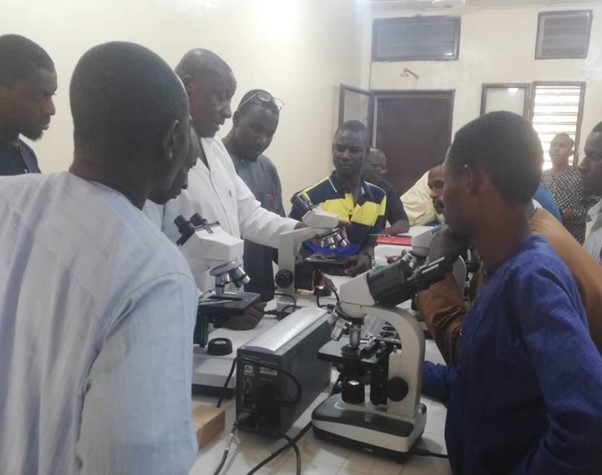
He disclosed the center also trains pre-tertiary refugees to use digital and analogical tools, for example, for measuring electrical current of bulbs. Prof Madougou said trainers from the center have been helping trainees in the refugee camps to use both conventional and non-conventional ways to undertake their experiments and organizes several training sessions per year to help the students prepare for various examinations, resulting in a 73.29% pass rate in their Senior Secondary School Certificate Examination (SSSCE), for example.
Again, in a cost-sharing approach, according to Prof Madougou, the center collaborated with the UNHCR to provide trainers to train refugees from Nigeria, achieving a number of results.
On his part, CEFTER leader, Prof. Barnabas Achakpa Ikyo, who described the engagement and possible partnership with the UNHCR as welcome news, shared key experiences in hosting refugee students and some of the centre’s outreach activities to the refugee camps. CEFTER is hosted by Benue State University in Benue State, Nigeria. According to 2023 UNHCR data presented by Prof. Ikyo, Benue State alone hosts about 10% (8,797) of the 87,000 refugees in Nigeria, owing to the State’s closeness to Cameroon, from where most of these refugees have fled.
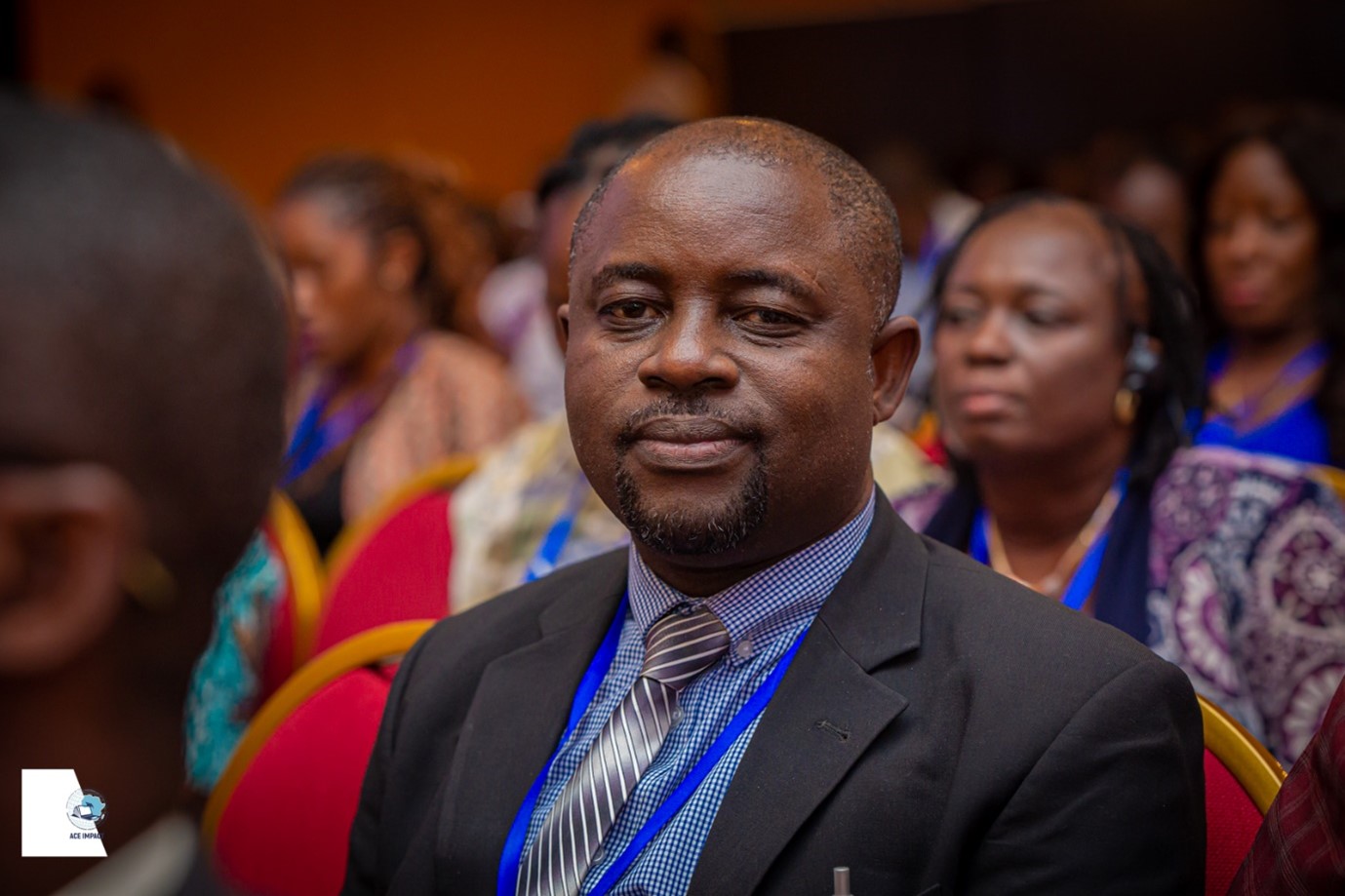
As part of its activities geared towards refugees, the center has, since the beginning of its engagement in 2016, trained hundreds of refugees in their camps and certified some on basic nutrition, food safety, food processing, packaging, and value addition. CEFTER has even gone ahead to provide start-up capital and logistics to some entrepreneur refugees. Through this, not only has the center helped protect the raw food materials from going waste, but it has also helped improve the hygienic conditions of refugees’ setting and empowered them to obtain jobs in restaurants and set up businesses within the food value chain.
CEFTER’s achievements have not gone unnoticed, as the DAAD has acknowledged the center’s effective model and offered yearly funding for more beneficiaries in Africa for three years to study master’s and PhD programmes. So far, 39 refugees from Cameroon are enrolled in the center’s post graduate programmes. Out of the number, 34 of them (17 females and 17 males) are pursuing MSc programs, while 5 of them (2 females and 3 males) are pursuing PhD programs. The center has also trained 65 Cameroonians in short-term courses. A total of 489 refugees, comprising 339 females and 150 males, have undertaken CEFTER’s short courses.
Indeed, these results have been achieved not without challenges. One biggest challenge projected by the two centers during their presentations at the webinar is the lack of sufficient funding to sustain the great capacity building and academic support initiatives and the start-up funding for refugees to consolidate the gains made so far. It was thus suggested that centers foster sustainable partnerships that will ensure sustainable cashflows, expand the academic support to refugees, organize effective return programmes for refugees, and improve on the ACE model in general.
In the next phase of the initiative, Dr. Ekua Bentil, Senior Education Specialist and task team leader for ACE Impact at the World Bank, made a compelling appeal to the two centers. She urged them to contemplate expanding their support for refugees within their existing funding or to explore alternative avenues to bolster this commendable initiative.
Dr. Bentil shared with the audience that her team was actively looking into potential funding opportunities within The World Bank’s refugee window. This strategic move forms part of a dedicated effort to elevate the inclusion of refugees in Africa’s higher education landscape.